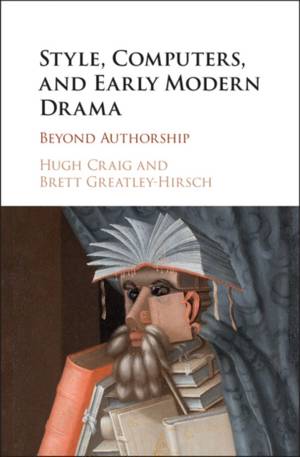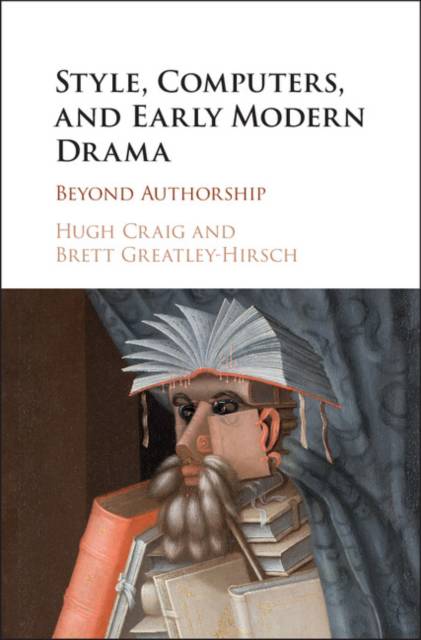
Bedankt voor het vertrouwen het afgelopen jaar! Om jou te bedanken bieden we GRATIS verzending (in België) aan op alles gedurende de hele maand januari.
- Afhalen na 1 uur in een winkel met voorraad
- In januari gratis thuislevering in België
- Ruim aanbod met 7 miljoen producten
Bedankt voor het vertrouwen het afgelopen jaar! Om jou te bedanken bieden we GRATIS verzending (in België) aan op alles gedurende de hele maand januari.
- Afhalen na 1 uur in een winkel met voorraad
- In januari gratis thuislevering in België
- Ruim aanbod met 7 miljoen producten
Zoeken
Style, Computers, and Early Modern Drama
Beyond Authorship
Hugh Craig, Brett Greatley-Hirsch
Hardcover | Engels
€ 183,45
+ 366 punten
Omschrijving
Hugh Craig and Brett Greatley-Hirsch extend the computational analysis introduced in Shakespeare, Computers, and the Mystery of Authorship (edited by Hugh Craig and Arthur F. Kinney; Cambridge, 2009) beyond problems of authorship attribution to address broader issues of literary history. Using new methods to answer long-standing questions and challenge traditional assumptions about the underlying patterns and contrasts in the plays of Shakespeare and his contemporaries, Style, Computers, and Early Modern Drama sheds light on, for example, different linguistic usages between plays written in verse and prose, company styles and different character types. As a shift from a canonical survey to a corpus-based literary history founded on a statistical analysis of language, this book represents a fundamentally new approach to the study of English Renaissance literature and proposes a new model and rationale for future computational scholarship in early modern literary studies.
Specificaties
Betrokkenen
- Auteur(s):
- Uitgeverij:
Inhoud
- Aantal bladzijden:
- 298
- Taal:
- Engels
Eigenschappen
- Productcode (EAN):
- 9781107191013
- Verschijningsdatum:
- 3/08/2017
- Uitvoering:
- Hardcover
- Formaat:
- Genaaid
- Afmetingen:
- 152 mm x 231 mm
- Gewicht:
- 612 g

Alleen bij Standaard Boekhandel
+ 366 punten op je klantenkaart van Standaard Boekhandel
Beoordelingen
We publiceren alleen reviews die voldoen aan de voorwaarden voor reviews. Bekijk onze voorwaarden voor reviews.









